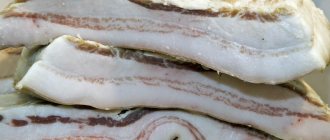Fermented milk products are good for health: they enrich the body with calcium, nutrients and bifidobacteria, giving gastronomic pleasure and quick satiety. However, when fresh, it lasts no more than 3 days, so the question remains relevant for many housewives: is it possible to freeze cottage cheese in the freezer?
Fermented milk products are rich in calcium and protein, have a pleasant taste and quickly fill you up. However, they are perishable and can only be preserved for a long time by freezing.
Freezing extends the shelf life of products and preserves their taste. However, it is important to properly organize storage. The tips and tricks collected in this article will help you freeze homemade cottage cheese correctly.
Cottage cheese storage conditions
According to GOST 31453-2013 Cottage cheese, the product must be stored at a temperature of 4±2 °C. This is the standard temperature of refrigerators used in everyday life.
The product can be safely left on the shelf in its original packaging or after transferring it into a glass or enamel container and covering it with a lid to prevent weathering. It is better not to use cling film and cellophane, otherwise the cottage cheese may begin to suffocate and darken.
According to the text of the above GOST, manufacturers have the right to set the shelf life of cottage cheese themselves. As a rule, the shelf life depends on the type and fat content of the cottage cheese and the presence of preservatives in it.
There are several main varieties of cottage cheese available for sale: natural homemade and store-bought - pressed and granular. They have their own distinctive features and different shelf life.
| Type of cottage cheese | Distinctive features | Best before date |
| Home/peasant | The fattest type of cottage cheese (up to 20%). Implemented by private owners from villages. It is prepared at home, often without complying with SanPin standards. | ~ 2 days |
| Compressed (cottage cheese) | The most popular type of cottage cheese. It is a fine-grained mass. Soft, well suited for preparing dishes with a creamy texture. Sold in foil or paper packaging or plastic containers. | ~ 5-7 days |
| Grainy | Cottage cheese with the addition of cream has a salty taste and is offered in vacuum packages as a separate dish and as a dessert with jam or preserves. | up to 30 days |
Cottage cheese with an expiring shelf life can be used to prepare a casserole, cake or any other dish that requires high-quality heat treatment, preferably in a frying pan, in the oven or in the microwave at very high temperatures. Cooking in boiling water is also suitable if you are preparing, for example, lazy dumplings.
Frozen cottage cheese dishes
Curd donuts
Ingredients:
- 200 g defrosted cottage cheese;
- 2 eggs;
- 1 cup flour;
- 2 tablespoons sugar;
- 1 teaspoon (level) salt;
- 0.5 teaspoon baking powder;
- powdered sugar for decoration;
- oil for frying.
- Combine all ingredients, mix, roll into balls, roll each in flour.
- Fry donuts in boiling oil.
- Sprinkle with powdered sugar before serving.
Lazy dumplings
Ingredients:
- 500 g defrosted cottage cheese;
- 2 eggs;
- 2 tablespoons sugar;
- 1.5 cups flour;
- 3 tablespoons butter;
- 1 tablespoon of thick sour cream;
- a pinch of salt.
- Rub the cottage cheese through a sieve, add the remaining ingredients and mix.
- Cut the resulting curd dough into small pieces and cook them in salted boiling water until ready.
- Serve with butter, sour cream, berries or jam.
Cottage cheese is very healthy and nutritious. It is delicious in different variations of preparation. Include cottage cheese in your daily diet and you will always be full and healthy.
Is it possible to freeze cottage cheese?
Not a single manufacturer indicates on the packaging information about whether cottage cheese can be frozen in the freezer. This is quite fair, because this is not provided for by GOST requirements. However, the regulations do not contain information that freezing cottage cheese is prohibited.
It has long been proven that freezing does not affect the taste and nutritional value of products: be it fresh fruits and berries, milk, meat and fish products. Freezing cottage cheese is no exception.
It has been experimentally found that cottage cheese does not lose its properties, structure and taste when frozen fresh. Once defrosted, it can be consumed without resorting to heat treatment.
If manufacturers freeze raw and ready-made semi-finished products with cottage cheese, which require long-term storage in the store freezer: cheesecakes, dumplings, pancakes and other dishes, then this method works. You can safely freeze homemade dishes with cottage cheese.
Goat cheese also tolerates storage in the freezer well. In its composition, it is very close to cow's, so there are no fundamental differences in how it is frozen and defrosted.
From the above-mentioned GOST requirements, we conclude that cottage cheese should normally be stored in the refrigerator and not in the freezer. But since there is no data on whether cottage cheese can be frozen in the freezer, then you should adhere to generally accepted rules.
What happens to cottage cheese when frozen
Goat or cow's curd retains its health and nutritional properties when frozen. But when a fermented milk product begins to deteriorate, cooling it does not guarantee that pathogenic microorganisms will die. Cold does not improve its quality or kill germs. The only thing that can be achieved this way is to slow down the negative processes that lead to spoilage at temperatures above 0˚ C.
All known and unknown ways to quickly freeze ice into cubes Transparent and smooth ice cubes are indispensable in the heat. They can be added not only to lemonade or juice, but even to coffee or tea,…
Freezing allows you to preserve the product in the form in which it was subjected to this processing, but only if the rules have been followed. The best option for preserving quality is blast freezing, maximum degree of cooling (about -35˚ C) and minimum cooling time. In the freezer, whose power reaches only -15˚ C, its structure changes. The liquid in it crystallizes, and after defrosting, the curd mass will separate, its taste characteristics will also deteriorate.
How to freeze cottage cheese
Cottage cheese can be frozen in several ways:
- in original packaging, if its integrity is not compromised - perhaps this is the best option for freezing cottage cheese - this way it will retain all its beneficial properties;
- in glass or enamel containers - dishes with an airtight lid are perfect for these purposes to prevent the entry of air or foreign odors;
- in tightly closed plastic containers;
- in regular cellophane or zip lock bags.
Each of the above methods has its own advantages and disadvantages. For example, storing in zip-lock bags perfectly saves space in the freezer, but can negatively affect the color of the cottage cheese.
Important: having chosen any of the methods, always label the container in the form of a piece of paper taped with tape, which will indicate the start date of storage and expiration date. The marking should be on the front of the package and be visible and easy to read by all family members to avoid trouble.
It is noted that it is better to freeze cottage cheese in small portions, because if you take a large volume at once and remove it from the freezer several times to freeze it again, the product may spoil.
The temperature of your freezer should not be higher than -18 degrees for optimal freezing. If possible, first set the temperature to -30 degrees, blast freezing, then raise it.
Please note: sugar in curd products is an excellent preservative. Therefore, if you freeze cottage cheese after sprinkling it with a small amount of sugar, its shelf life will increase.
How to recognize a delay and what to do about it
It is very important to recognize in time that the product is expired and can no longer be stored. Obvious signs of expired cottage cheese are:
- sharp, pronounced sour odor;
- bitter taste;
- “loose” consistency (part of the mass has become liquid, the other has dried);
- grayish-yellow color;
- the appearance of mold spots.
Some housewives use slightly sour cottage cheese to make casseroles, cheesecakes, or in home cosmetology (recipe in the video below). Of course, we are only talking about a slightly expired product.
If the cottage cheese tastes bitter, a musty smell has appeared, and even more so mold has appeared - under no circumstances should it be eaten.
Every housewife should know the basic rules for storing cottage cheese in the refrigerator or in some unforeseen situation using old grandmother's methods. How to freeze and defrost it correctly, recognize when it’s expired and what to do about it. Then this valuable dairy product will only benefit you.
Fermented milk products are good for health: they enrich the body with calcium, nutrients and bifidobacteria, giving gastronomic pleasure and quick satiety. However, when fresh, it lasts no more than 3 days, so the question remains relevant for many housewives: is it possible to freeze cottage cheese in the freezer?
How to defrost cottage cheese correctly
It is recommended to defrost the cottage cheese by leaving it on the refrigerator shelf for 12 hours or overnight. The exact defrosting time directly depends on the volume of the product.
It is extremely undesirable to leave cottage cheese at room temperature, both before and after defrosting. This can provoke the development of pathogenic bacteria and mold in it, as they love warmth.
Thawed cottage cheese should be consumed within two days. If the cottage cheese has been sitting for quite a long time before freezing, then it is better to cook something from it.
As for defrosting home-cooked or factory-made semi-finished products containing eggs, flour, sugar and other ingredients, it is not necessary to defrost them before cooking. During the cooking process, the filling melts perfectly under the influence of high temperatures, maintaining its original structure.
If you have defrosted the cottage cheese once, you should not freeze it again. This will negatively affect its taste and, especially, its structure.
Quick defrosting methods
You can quickly defrost cottage cheese from the freezer only if you plan to use it immediately. All these methods may be unsafe.
| Fast defrosting method | Time needed | Peculiarities |
| At room temperature | 2-3 hours | The product may spoil, especially if the room is hot. |
| In cold water | 3-6 hours | Suitable mainly for small bags or containers of cottage cheese. |
| In hot water | 1-1.5 hours | The product may not be heated evenly and its texture will become thinner. |
| In the microwave | up to 10 min. | Cottage cheese can only be defrosted at minimum microwave power. |
| In the oven | 30 min. | Only permissible at temperatures around 30°C. |
| In a slow cooker | 10-30 min. | The product may absorb liquid from the steam and become watery. |
At room temperature
This method is used when the product will be subjected to immediate heat treatment. To quickly defrost cottage cheese, you need to remove it from the freezer and leave it indoors for 2-3 hours in a sealed zip bag or container.
After the specified time has passed, you need to drain all the liquid from it and start cooking.
In cold water
To speed up the process of defrosting cottage cheese, you can place the container or bag of frozen product in cold or warm water. This way it will thaw within a few hours, depending on the serving size and packaging (bags defrost faster).
In the microwave
You can quickly defrost cottage cheese from the freezer in the microwave. To do this, you will need to use the lowest power of the electrical appliance in the defrosting mode (or using the option for bread or seafood, depending on the model and functionality).
The basic rule when defrosting cottage cheese in the microwave is that it should remain cold during the process. To do this, heat it at the specified mode in sessions of 1-1.5 minutes, after which take breaks of 30 seconds. and turn it over every time. A product packaged in a bag will defrost faster compared to a container.
In the oven
Thawing the product in the oven at high temperatures is not recommended in the same way as in hot water. However, some modern models of kitchen equipment have special modes that allow slow, smooth heating. In this case, you will need to preheat the oven to 30°C and turn on convection, then place the cottage cheese in it for 10 minutes. Halfway through this time, it is recommended to turn the product packaging over.
In a slow cooker
You can quickly defrost cottage cheese from the freezer in a slow cooker. To do this, you will need to place the packaged product on the grill and turn on the electrical appliance in steamer mode. In this case, it is necessary not to close the lid and turn the product over from time to time. This will ensure even defrosting and prevent excess moisture.
In hot water
When the package is placed in a container with hot water, the outer layer of cottage cheese will quickly thaw, but the inside will remain frozen. Its quality will be noticeably deteriorated - it will become liquid and inhomogeneous.
How to quickly defrost cottage cheese - this can be done in hot water.
Therefore, this method can only be used for defrosting small packages and only when absolutely necessary.
Tips for defrosting
It is not necessary to wait until the cottage cheese thaws to an acceptable temperature. The mass can be passed through a meat grinder or scrolled in a blender. Although “chopped” it will be cold, you can work with it without waiting for defrosting. In addition, even complete thawing will take place faster.
Cold cottage cheese can be used to make casseroles, cheesecakes or pancake filling. Even if the mass is not completely warmed up before going into the oven, this will not affect the taste of the finished dish or its appearance.
How long can cottage cheese be stored in the freezer?
Frozen cottage cheese is stored in the freezer for up to two months at home and up to six months in industrial conditions, then it must be disposed of. Eating slightly stale cottage cheese can lead to intestinal disorders and other gastrointestinal problems.
Try not to put a product in the freezer that is about to go bad: weathered, with a stale “smell,” and even more so, with mold. The decomposition processes will, of course, stop during freezing, but the cottage cheese will ultimately still be unfit for consumption.
The reduction in storage time can also be influenced by the initial freshness of the cottage cheese (how long it was stored before freezing), the integrity of the packaging, the presence of additional ingredients in it, such as starch or citric acid, and many other factors.
Semi-finished products prepared with eggs (for example, cheesecakes) can be stored for up to 60 days, and ready-made dishes without adding eggs can be stored for up to 120 days.
It is recommended to periodically inspect the refrigerator and freezer and promptly get rid of stale products. This will allow you not to worry about whether someone in your household has eaten expired curd mass.
Useful properties of cottage cheese and calorie content
The undoubted benefits of cottage cheese for the body are due to the biologically active compounds present in it. The amount of fat in the product depends on the type and method of production. Tocopherols, folic acid and vitamin B12 are contained only in varieties of cottage cheese whose fat content is higher than 19%.
All types of curd contain casein - concentrated milk protein, carbohydrates (lactose), ash, small doses of vitamins (A, beta-carotene and group B, PP), mineral salts of sodium, potassium, magnesium, zinc, copper, calcium, iron, phosphorus, amino acids (including methionine and tryptophan).
The calorie content of a product depends on the amount of fat present in it:
- fat cottage cheese (19-23% fat content) has an energy value of 232 kcal/100 g of product;
- classic cottage cheese (9%) – 159 kcal/100 g;
- semi-fat cottage cheese (5%) – 121 kcal/100 g;
- low-fat cottage cheese (less than 1%) – 79 kcal/100 g.
Regular inclusion of cottage cheese and dishes in the recipe of which it is included in the menu helps to increase the amount of hemoglobin and improve blood composition. The product activates the regeneration processes of cells of the nervous system, thereby improving the conductivity of nerve impulses.
Cottage cheese is especially valued for its diuretic properties - by activating urine formation, the body is freed from excess fluid in the tissues, which helps eliminate edema of various origins. Methionine in various varieties of cottage cheese prevents fatty degeneration of the liver and the development of obesity in this organ.
A high concentration of readily available proteins (casein) helps increase muscle mass. Biologically active compounds in cottage cheese improve the body's resistance and the state of the immune system, normalize the microflora in the intestines and rid the body of waste, toxins, decay products and fecal debris.











